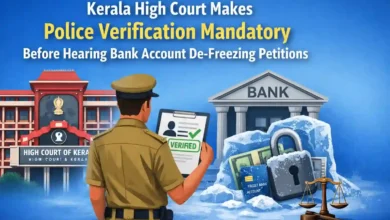Madras High Court Regularized Contract Veterinary Surgeons in Puducherry

A Division Bench of the Madras High Court, comprising Dr. Justice Anita Sumanth and Justice G. Arul Murugan, upheld a Central Administrative Tribunal (CAT) order to regularize contract-based Veterinary Assistant Surgeons in Puducherry. These veterinary surgeons had been working on a contract basis for nearly two decades to fulfill essential public health needs. The court ruled that the unique circumstances of chronic staff shortages and critical service demands in Puducherry justified regularization despite procedural objections from the Union Public Service Commission (UPSC).
Background of the Case
The case involved veterinary surgeons in Puducherry who had been hired on a contract basis since 2005. Although their positions were labeled “contractual,” the Union Territory government regularly renewed their employment due to an ongoing shortage of veterinary staff. These veterinarians performed essential duties, working in animal health clinics, labs, and rural dispensaries. They argued that their role was integral to Puducherry’s veterinary health services and that they should be regularized due to the long-standing necessity of their services. However, the Union Territory and the central government contended that their employment was temporary and did not entitle them to permanent status.
Arguments from Both Sides
- Petitioners (Union of India and Officials): Represented by Mr. Syed Mustafa, the petitioners argued that these veterinarians were hired on an ad-hoc basis to fill temporary needs and, therefore, did not have the right to permanent positions. They cited Article 320 of the Indian Constitution, which mandates that permanent positions for Group ‘A’ posts require UPSC approval. They argued that bypassing this procedure would violate constitutional guidelines for public appointments.
- Respondents (Veterinary Assistant Surgeons): Represented by Mr. Karthik Rajan, the respondents argued that they had been performing duties similar to those of regular employees for nearly two decades. They claimed their continued employment highlighted an essential need that had not been met due to chronic staffing shortages. The veterinarians stated that denying regularization after such an extended period of service would be unjust, given the essential and demanding nature of their work.
Court’s Rationale for the Decision
- Long-Term Necessity Beyond Temporary Work: The court noted that the veterinarians had been continuously re-engaged over nearly 20 years, which indicated a long-term need rather than a temporary situation. The court agreed with the CAT’s earlier finding that these veterinarians served an essential role, given the Union Territory’s chronic staff shortage.
- Article 320 Consideration: Although Article 320 requires UPSC involvement in regular appointments to maintain transparency, the court found this requirement flexible given the unique situation in Puducherry. It noted that the veterinarians were hired based on an established need and had undergone a merit-based process. Their continued reappointment highlighted the government’s reliance on them to maintain essential services, justifying an exception in this case.
- Acknowledge Critical Service Role: The court emphasized the veterinarians’ importance to the public, citing their roles in animal health clinics and rural dispensaries as essential. The ongoing reliance on these veterinarians underscored their necessity to the department, making regularization a logical step for the Union Territory government.
- Distinguishing from Umadevi Judgment: In considering the precedent set by the Umadevi judgment, which limits regularization of irregular appointments, the court clarified that the veterinarians were not “backdoor” entries. Their hiring was transparent, based on sanctioned posts, and responded to an urgent need. This differed significantly from irregular hiring practices covered by Umadevi.
Court’s Final Decision
The court upheld the CAT’s directive for regularization, requiring the Union Territory government to regularize the veterinarians’ positions within eight weeks. The court dismissed the Union Territory’s appeal, reinforcing that the veterinarians’ longstanding roles and essential services warranted permanent employment status.
